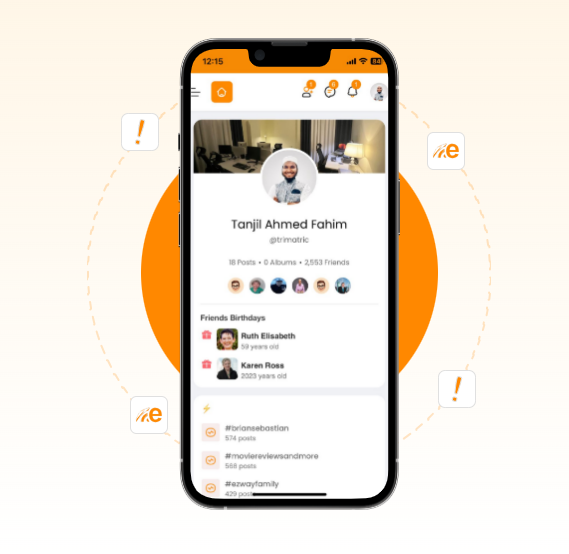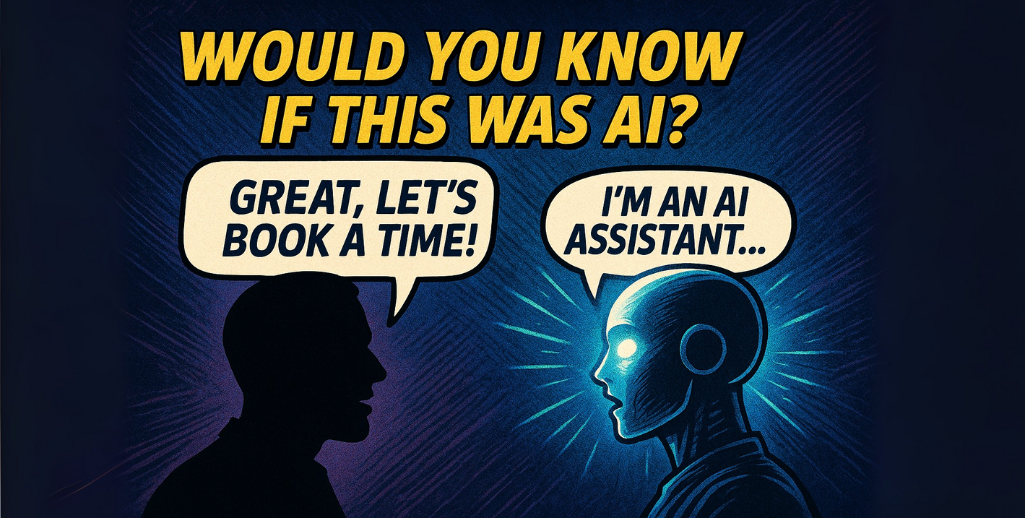AI voices are getting very good. So good, in fact, that it’s easy to forget you’re not speaking to a human.
Recently, I listened to a demo where a Voice AI scheduled an appointment between its “boss” and a potential client. The AI did say it was an “AI Assistant.” Technically, that’s disclosure. But here’s the catch:
👉 Did the potential client truly process that they weren’t speaking to a person?
👉 Or did they, like most of us would, slip into the flow of the conversation and forget?
And that’s the heart of the issue.
Disclosure ≠ Understanding
Telling someone “I’m an AI Assistant” doesn’t guarantee comprehension. Many people hear assistant and assume human. And once the conversation feels natural, most forget entirely.
This isn’t about people being naïve — it’s about human psychology. We’re wired to treat conversational voices as social. Once rapport is established, the line between human and machine blurs fast.
The Risk in Sales & Client Relations
When Voice AI is used for sales calls or client-facing conversations, the stakes are higher than with restaurant bookings or delivery confirmations.
If a potential client realizes later they were speaking to AI — not a human they thought they were building trust with — it can feel deceptive. That erosion of trust doesn’t just harm the technology provider. It damages the reputation of the business using it.
The gap between what’s “technically disclosed” and what’s actually understood becomes an ethical problem.
What True Transparency Could Look Like
Instead of just “AI Assistant,” imagine this introduction:
“Hi, I’m an automated AI scheduling assistant calling on behalf of [Name]. I’d like to set up a follow-up conversation with you.”
That phrasing gives both disclosure and context. It says what the AI is, and why it’s here. No ambiguity.
Why This Matters Now
As AI grows more advanced, so does the responsibility to use it ethically. Regulations will likely catch up, but businesses don’t need to wait.
The companies that lead with transparency now will win long-term trust. The ones that cut corners will face backlash later.
✅ Takeaway: Voice AI is powerful, but power without clarity creates risk. In sales, where trust is currency, businesses should prioritize radical transparency. Not just for compliance, but because it’s the foundation of long-lasting client relationships.
Looking Ahead
As AI continues to evolve, businesses that adopt it with transparency and integrity will be best positioned to thrive. For coaches, consultants, and service providers already operating at scale, the opportunity is not just in adopting AI — but in doing so in a way that enhances client trust and experience.
For those seeking guidance, Mona Tenjo provides AI audits and process optimization support, helping businesses identify where AI can save time, reduce costs, and streamline operations without adding complexity.
📩 Readers interested in exploring how AI could optimize their own business processes can reach out directly for more information: [email protected]
About the Author
Mona Tenjo helps 6–7 figure coaches and service providers implement AI systems that save time, increase profit, and enhance client experience — without adding tech overwhelm. Known for blending strategy with integrity, Mona is passionate about making AI both practical and ethical in real-world business.































